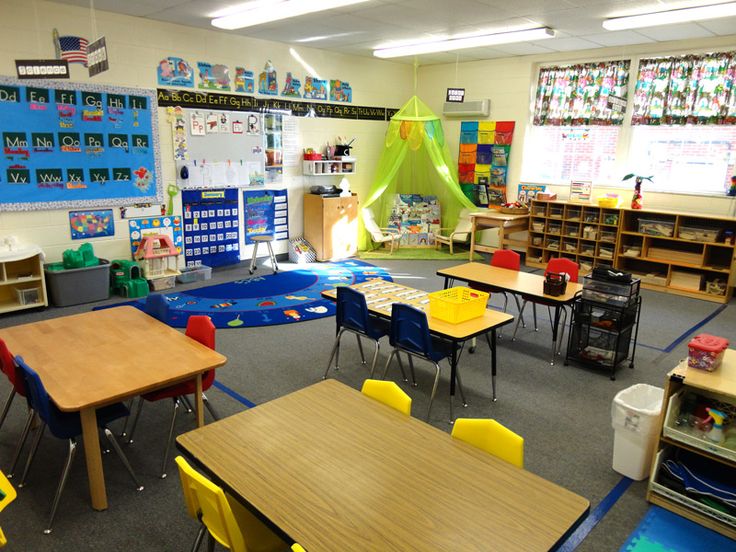Kindergarten is a critical step in a child’s educational journey, but the question of whether it’s mandatory in Pennsylvania often leaves parents and educators confused. While kindergarten is not legally required for all children in Pennsylvania, there are specific laws and guidelines that shape the state’s approach to early childhood education.
Understanding Pennsylvania’s Compulsory Education Laws
In Pennsylvania, compulsory education begins at age 6 and ends when a student turns 18. This means that children must attend school from the age of 6 until they turn 18, regardless of whether they’re enrolled in kindergarten or not. However, kindergarten itself is not mandated by state law.
The Public School Code of 1949 defines compulsory school age as starting at 6 years old and ending at 18. Students who have reached the age of 6 on or before September 1 must enroll in school or begin a homeschool program that year. This requirement applies to all students, including those who may be attending kindergarten.
The Role of Local School Districts
While the state does not require kindergarten, many school districts in Pennsylvania offer full-day or half-day kindergarten programs. In fact, 78.1% of kindergarten students in public schools attended full-day programs in the 2017-18 school year, according to the Kids Count Data Center. Some districts even offer full-day kindergarten to all students, while others provide a mix of full and half-day options.
However, school districts are not legally obligated to offer kindergarten. Budget constraints and resource limitations can lead some districts to cut back or eliminate kindergarten programs. Parents should check with their local school district to understand what options are available.
The Kerstetter Case: A Legal Precedent

A significant legal case involving kindergarten attendance in Pennsylvania is Commonwealth v. Kerstetter (94 A.3d 991). In this case, the Pennsylvania Supreme Court addressed whether children under the age of 8 were required to attend school if enrolled in kindergarten.
The court ruled that kindergarten enrollment is voluntary and that parents could choose to withdraw their children from kindergarten without facing truancy charges. However, if a child was enrolled in kindergarten, they were subject to the same compulsory attendance laws as any other student.
This ruling clarified that while kindergarten is not mandatory, once a child is enrolled, they must comply with the same attendance requirements as older students.
Governor Wolf’s Proposal for Full-Day Kindergarten

In recent years, Governor Tom Wolf has proposed expanding access to full-day kindergarten for all 5-year-olds in Pennsylvania. His budget proposal included a study to evaluate the costs and benefits of offering universal full-day kindergarten.
Wolf argued that early education plays a crucial role in preparing children for future academic success. He emphasized that full-day kindergarten has become an essential service, and school districts should be required to provide it.
Although the proposal did not include immediate funding, it highlighted the growing recognition of the importance of early childhood education. Many school districts in Pennsylvania already offer full-day kindergarten, especially in regions like the Lehigh Valley.
Truancy and Attendance Policies

Pennsylvania has strict truancy laws to ensure that students attend school regularly. A child is considered truant if they have three or more unexcused absences in a school year, and habitually truant if they have six or more unexcused absences.
Schools are required to implement attendance policies that outline how absences will be handled. These policies must comply with federal laws such as the Individuals with Disabilities Education Act (IDEA) and Section 504 of the Rehabilitation Act.
For students with disabilities, schools must work closely with families to address attendance issues. If a student is absent due to a medical condition, they may be eligible for accommodations under IDEA or Section 504.
Homeless Students and Attendance
Pennsylvania law recognizes that homelessness can be a barrier to school attendance. The McKinney-Vento Homeless Assistance Act requires schools to remove barriers to education for homeless children and youth.
Absences caused by homelessness must not be counted as unexcused. Schools are encouraged to work with families to address the root causes of absenteeism, such as lack of transportation or housing instability.
What Parents Should Know

If you’re a parent in Pennsylvania, here are some key points to consider:
- Kindergarten is not legally required for all children, but many school districts offer it.
- Compulsory education starts at age 6, so your child must attend school by that age.
- Truancy laws apply to all students, including those in kindergarten.
- Homeless students are protected from being penalized for absences caused by their living situation.
- School districts may vary in their approach to kindergarten, so it’s important to check with your local district.
Conclusion
While kindergarten is not mandatory in Pennsylvania, the state’s compulsory education laws ensure that all children receive a quality education. Parents should be aware of their rights and responsibilities, and school districts should work to provide equitable access to early childhood education.
As Governor Wolf’s proposal suggests, the future of kindergarten in Pennsylvania may involve expanding access to full-day programs. For now, parents and educators must navigate a system that offers flexibility but also enforces strict attendance requirements.
Whether your child is in kindergarten or a higher grade, understanding Pennsylvania’s education laws is essential for ensuring their academic success.











More Stories
When Are PSAT Scores Released in 2024? Everything You Need to Know
What is Kiddle for Kids? A Parent’s Guide to Safe and Educational Browsing
US Trending News: What is K5 Learning? A Complete Guide for Parents and Educators